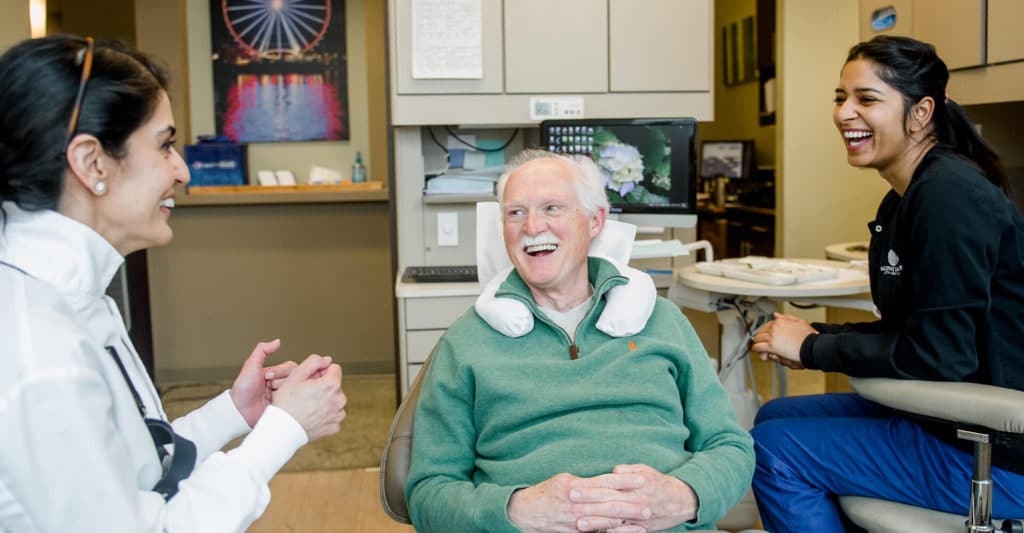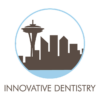By 2030, the last of the Baby Boomers will turn 65 and older; these individuals will account for 20% of our population. While the prolongation of life is a great achievement, it also may lead to other unforeseen problems for us to deal with as we age.
The experts at Innovative Dentistry will be looking specifically at oral health concerns for older individuals, as well as, providing some tips for how to improve oral health.

Recession can simply occur with aging, but may lead to root decay on exposed surfaces.
Dry Mouth - Innovative Dentistry
Dry mouth or Xerostomia affects a large portion of the population, especially as we age. While it can be caused by radiation treatment to the head and neck, it’s most commonly a side effect of numerous medications.
Xerostomia becomes a problem because with less saliva our mouths become more acidic; acidity is what causes decay to progress rapidly.
Depending on other risk factors, we may suggest a prescription fluoride toothpaste or custom fluoride trays. Adding additional fluoride helps to strengthen your enamel and make it more resistant to decay.
Root Decay - Oral Care
The majority of our population has some degree of gum recession, but this can worsen as we get older.
Recession exposes the roots of the teeth, which are covered in dentin, and not protected by the stronger tooth surface called enamel.
Dentin is much softer than enamel so decay on root surfaces progresses much more quickly than decay on the crown of the tooth.
It’s important to remove plaque at the gumline to not only prevent decay, but it will also slow the advancement of recession. You and your hygienist will discuss the best homecare aids for you.

Limited Dexterity
Certain diseases, including Arthritis, Multiple Sclerosis and Parkinson’s can all affect our ability to brush and floss well. Even if you have not been diagnosed with a disease, general muscle weakness/loss can decrease your effectiveness.
If this is the case, a brush with a larger handle, or an electric toothbrush, may be the best option for you. Additionally, a long handled flosser may aid you in flossing hard to reach areas. If you’ve noticed you’re having trouble, ask your hygienist to provide you with the best options to brush and floss effectively.
Cognitive Limitations
As we age our risk for dementia increases and eventually, tooth brushing will fall on the caregiver. It’s important for a caregiver to know how best to care for a patient’s oral health when they can no longer understand or do it themselves.
Here is a great guide from Tooth Wisdom which gives the step-by-step process of caring for another’s teeth. As a caregiver, never hesitate to call your patient’s dentist, we are happy to assist you.
While we can’t stop the clock, we can prepare ourselves to deal with the changes that come with aging. If you have any questions about any of the problems or recommendations that we discussed or may have noticed any of these problems or limitations happening to you, do not hesitate to ask questions at your next visit.
Please let us know so we can best assist you with your oral home care! Also, if you are a caregiver, we are more than willing to answer any questions about techniques or products. Our goal is to help you care for our mutual patients oral health in the best way possible!
References
Institute on Aging: https://www.ioaging.org/aging-in-america
A Place for Mom: https://www.aplaceformom.com/blog/1-18-16-reasons-senior-dental-health-care-is-important/
Tooth Wisdom: https://www.toothwisdom.org/a-z/article/providing-daily-mouth-care-for-loved-ones/
American Dental Association
https://www.ada.org/en/member-center/oral-health-topics/aging-and-dental-health

